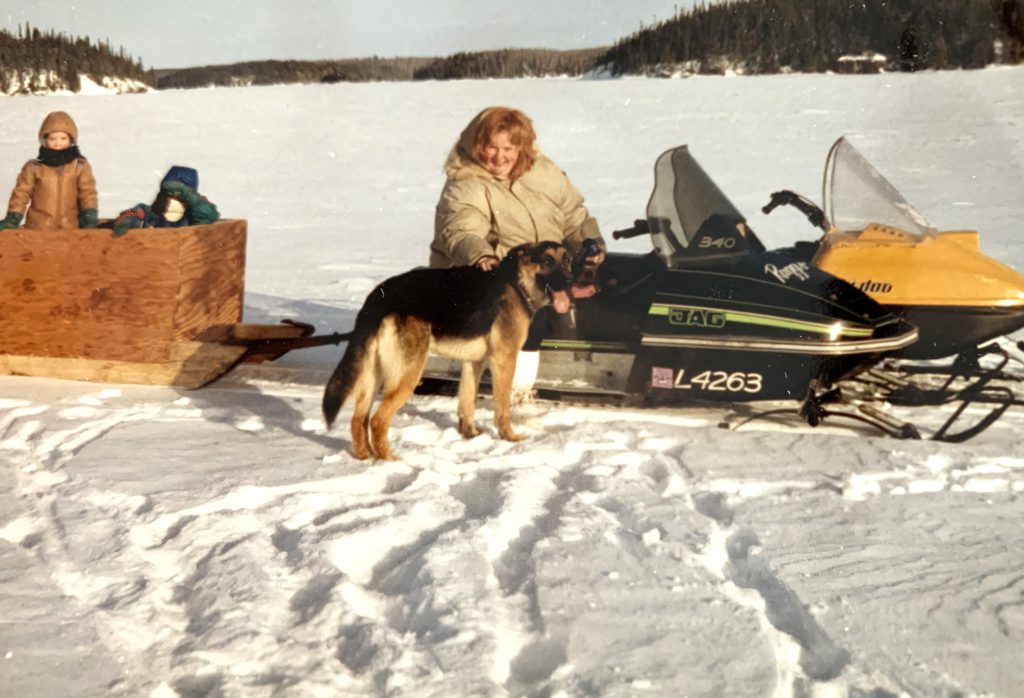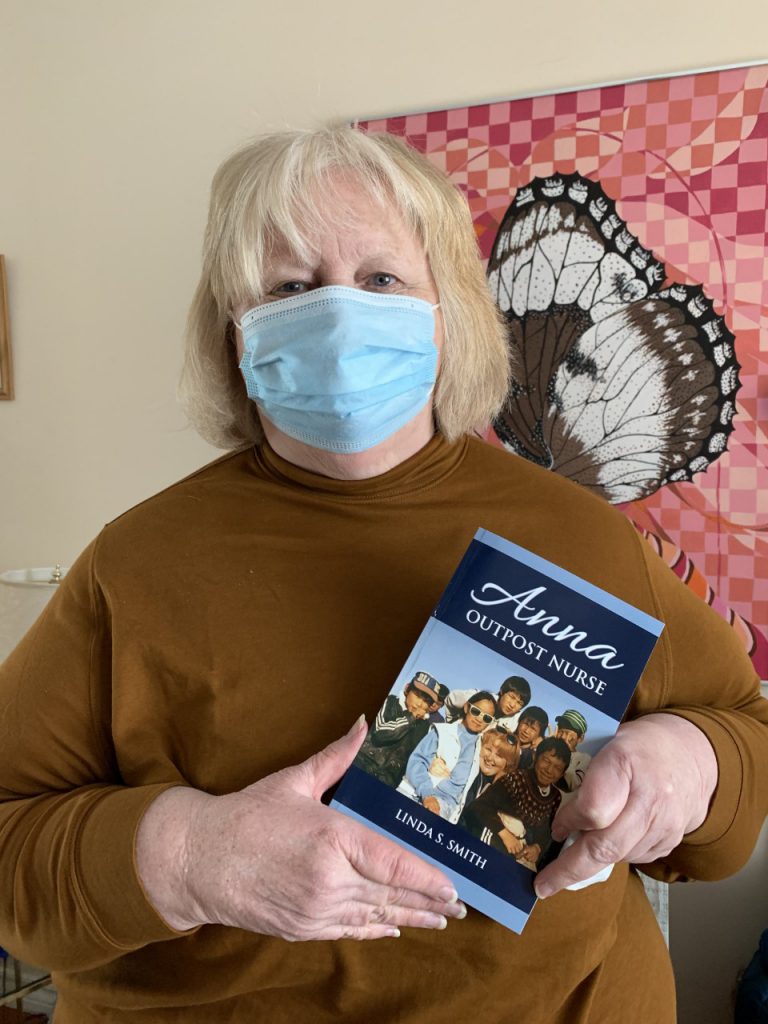Retired nurse reflects on decades of service
May 10, 2021
May 10 to 16 is National Nursing Week in Canada. To honour some of our frontline heroes, Georgian will be sharing stories of hardworking, courageous nurses all week long.
Anne Moller’s infectious laugh and robust presence brings a sense of hope to her patients, like maybe things aren’t as bad as they seem. Although retired now, she is the nurse you want by your side. She’s the one who will make you smile through tears and warm your hand in hers. She has been – and still is – a light for so many in their darkest times.
And make no mistake; she’s not a stranger to dark times. Anne (pronounced ‘Anna’) graduated from Georgian College’s two-year Nursing program in 1978. Although the first eight years of her career were spent at urban hospitals in Edmonton and Barrie (with a year at a nursing home in Barrie) she spent the next 10 years as an outpost nurse working in Canada’s far north.

She recalls arriving in Nunavut (Northwest Territories at the time) in 1988, to an isolated village of about 400 people, now called Qikiqtarjuaq (pronouced ki-kik-TAAKjo-ahk). There was a suicide epidemic at the time, and as an outpost nurse, she was often left on her own. One of her first experiences still haunts her.
“A 14-year-old girl hung herself with a shoelace on a towel rack in her bathroom and I had to go to the house with the RCMP and try to resuscitate her,” she recalls, her ardent voice lowering. “That kind of thing is totally devastating. You do your best, but there were no mental health resources at that time.”
There were many more incidents just as traumatic during her time up north, but her love for the people and her faith kept her going back there for a decade.
“Your faith will take you through things that you don’t think you’ll ever manage,” she says. “I prayed when I had terribly sick babies up in the clinic and there was only myself and another nurse. I’d say, ‘oh Lord, please help me through this. Help me keep this baby alive.’ Babies are not easy to get an intravenous in. I’d just pray about it and I’d be able to get the IV in.”

About 18 months ago, she had a book written detailing her experiences called Anna Outpost Nurse. In it, she outlines the memories she holds close.
After she trained to become a nurse practitioner, and finished her time up north, Anne came back to Simcoe County and worked at Royal Victoria Regional Health Centre (RVH) for 10 years, five years at the community hospital in Penetanguishene, as well as eight years at the Barrie Community Health Centre. She also worked at a SARS (Severe Acute Respiratory Syndrome) hospital in Brampton in 2003. It was her first experience working in an environment with a highly contagious form of coronavirus.
When COVID-19 hit Ontario, she was back where it all began, at Georgian, working part time in the Nurse Practitioner-led clinic, a position she took on after retiring from RVH at the age of 60.
She then faced her own health crisis that forced her to retire after 42 years. Kidney cancer meant surgery to remove her left kidney. Not only was it a blow to her health, it prevented her from helping people at a critical time.
But she has found a new way to help. Through her health crisis, she realized some of her friends were struggling to navigate their own health during the pandemic. Virtual doctors’ appointments about complicated health issues can be difficult for patients who often struggle to make sense of what their doctors are saying. Wearing a mask and gloves, Anne sits quietly in the room during her friends’ virtual doctors’ appointments (the doctors are aware she’s there) and takes notes so she can later answer their questions.
At a time when health care is challenging to access, Anne has become a sounding board, offering advice and telling friends when they should seek medical attention, although she never diagnoses. Wearing personal protective equipment, she’ll even drive them to appointments when they don’t have transportation. It’s her way of helping behind the frontlines.
This article was originally published in the spring 2021 edition of GeorgianView, the college’s alumni magazine.